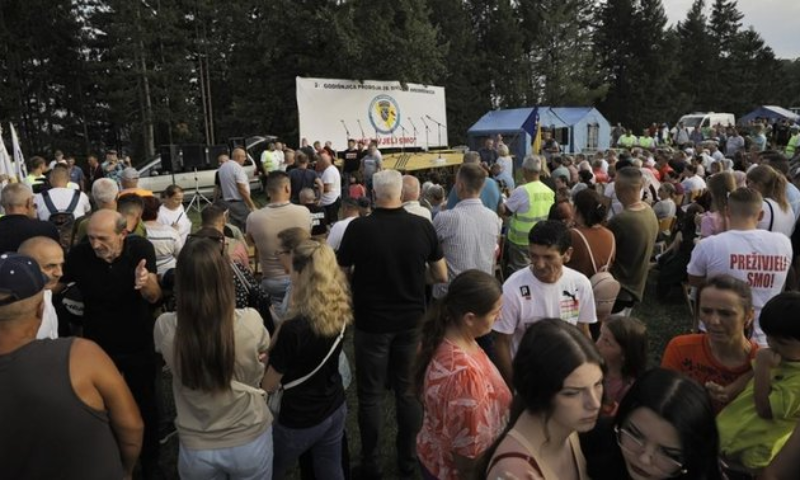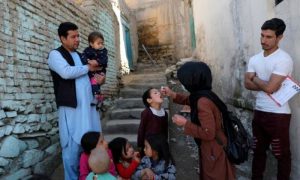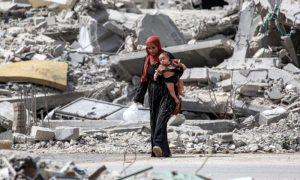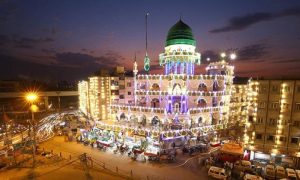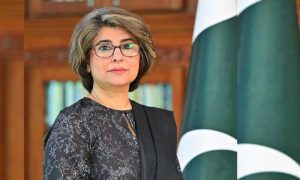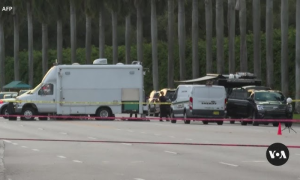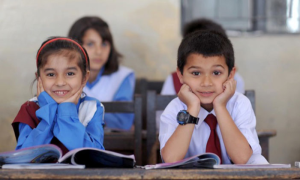NEZUK, Bosnia and Herzegovina: Thousands of people commenced their annual march on Monday from Nezuk to Srebrenica in eastern Bosnia to commemorate the 1995 genocide, the most devastating massacre in Europe since World War II. The march, spanning 100 kilometers (62 miles), retraces the path taken by the first survivors who reached Nezuk.
On July 11, 1995, Bosnian Serb forces captured Srebrenica, then a United Nations-protected enclave, and brutally killed 8,000 Muslim men and boys. This atrocity has been recognized as genocide by two international courts. Fatima Ibrahimbegovic Alic, whose father Ramiz was killed trying to escape, participates in the march to honor his memory and those of all the victims. “We need to keep doing this so we never forget,” she told news agency.
Marchers, bearing Bosnian, Palestinian, and Turkish flags, will pause at numerous mass grave sites where the remains of the victims were discovered. Azra Barakovac, a first-time participant from Sarajevo, emphasized the importance of the march in ensuring that such a tragedy is never repeated.
One of the few massacre survivors, Resid Dervisevic, recalls fleeing through the woods with eight male relatives, only to lose his brother, an uncle, and six nephews. Reflecting on the harrowing experience, he described the current march as a much less arduous endeavor compared to the seven days he spent in 1995, running barefoot, hungry, and sleepless through a forest under constant threat of bullets and shells.
In May, the United Nations General Assembly established an annual day of remembrance for the Srebrenica genocide, a decision met with strong opposition from the Serbian government and Bosnian Serb leaders who continue to downplay the atrocity and refuse to acknowledge it as genocide.
Ela Rehic, 14, and her mother dedicated their march to the victims who could not escape the massacre. Despite the physical challenge, Ela expressed a desire to understand the historical significance and the suffering endured by those fleeing Srebrenica. Similarly, 24-year-old Tofik Sejdic, born after the genocide, stressed the importance of remembering the events to honor those who perished.
The marchers are expected to arrive at the Potocari memorial center on Wednesday, where nearly 7,000 massacre victims are interred. They will participate in a ceremony on Thursday to mark the 29th anniversary of the genocide.
The 1992-1995 Bosnian War among Croats, Muslims, and Serbs resulted in approximately 100,000 deaths. Nearly three decades after the war’s conclusion, Bosnia remains deeply divided along ethnic lines. The annual march serves as a poignant reminder of the past and a call for unity and remembrance in a still-fractured nation.









